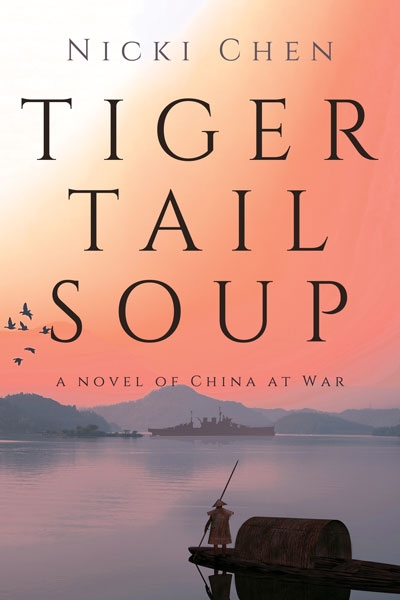In 1983, when Senator Benigno Aquino was assassinated, we were there—not at the Manila International Airport where thousands of supporters waited to welcome their hero back from exile in the United States, but at our home in Manila, watching the sad spectacle over and over and over again on TV.
We saw soldiers enter Aquino’s plane and escort him out the door and down the stairs. We heard repeated gunshots. And then we saw two bodies lying dead on the tarmac. The crucial minute of the shooting itself was absent. Here’s the chilling video.
Benigno (Ninoy) Aquino was a charismatic senator, the leader of the opposition party, the one best hope of a country suffering under the ailing dictator, Ferdinand Marcos. It was widely supposed but never proven that Marcos was behind the assassination.
Watching the television coverage of Aquino’s assassination and the nationwide sense of anger and mourning brought me back to the sadness and shock I felt when President John F. Kennedy was shot. As with Kennedy’s assassination, there tears and disbelief, and there were commissions that spent months studying everything surrounding the assassination of Senator Aquino.
When you’re in the middle of an earth-shattering event, you don’t look away. Still, I can’t pretend that the experience was the same for us as it was for Filipinos. Ninoy Aquino was not our countryman; he was not our hero and our hope. We were expats, visitors in his country.
So, I wondered, how did the story of Aquino’s assassination look and feel from inside the heart of a Filipino? As a reader and writer, I believe that if you want to put yourself inside the skin of another person, the best way is to read a great work of fiction.
 Luckily for me, after Christmas this year my daughter left a book she’d just finished at my house: In the Country by Mia Alvar. The short stories in Alvar’s magnificent collection give voice to Filipinos living at home and abroad. One of my favorite stories was “Old Girl.”
Luckily for me, after Christmas this year my daughter left a book she’d just finished at my house: In the Country by Mia Alvar. The short stories in Alvar’s magnificent collection give voice to Filipinos living at home and abroad. One of my favorite stories was “Old Girl.”
Within the thirty-nine pages of the story, the reader lives inside the mind of Corazon Aquino, who was the wife of Senator Benigno Aquino and the person who knew him best.
Here’s how the story begins:
The old girl’s husband—fifty-one years old, the 165-pound champion (as he likes to put it) of a triple-bypass surgery—tells her on March 1, 1983: “I had an idea, Mommy.”
Mommy is what the old girl’s husband calls her. And idea is a generous word for whim or flight of fancy, the kind of ill-considered impulse he’ll have often and won’t quit till he’s pulled it off (he almost always does, if barely) or failed (more rarely, but with flying colors). Not scheme or plan—God knows the old girl’s husband can’t be bothered with anything like a plan.
“It just came to me,” he says. “I thought I’d run the marathon this year!”
If this small taste intrigues you, look for In the Country by Mia Alvar in your favorite bookstore or on amazon. I think you’ll find it well worth reading.
Next week in Part 2 of An Assassination, Martial Law, and a Revolution, I’ll compare my experiences with martial law and a revolution with that of another character in Mia Alvar’s stories.




The excerpt from the author is interesting, but your telling makes me want to read it!
The interesting thing about this story to me was how well she described the very different personalities of husband and wife. He had the charisma of a politician. She was actually smarter in many ways but lacked that charisma. As it turned out, she became president on the strength of his personality after his assassination.
I’ll put that one on the TBR. Something different for sure.
It’s very well written. She has a knack for painting a picture of the lives and circumstances of her characters.
Such an unfortunate country now.
As in the United States, there seems to be differing views in the Philippines about the current president. Personally I’m horrified by what I hear about the extra-judicial killings.
‘I contend that an educated person would do well to read both fiction and non-fiction.’
I agree to a greater degree but one has to be discerning with the information that has been circulated esp in the present climate. Too often, people pass judgements or made comments in reference to others eg culture, religion etc and they had never visited the respective country let along lived there.
In a forum recently, a local male commented on the remarks made by a handful of his countrymen towards certain Europeans. He pointed out to the respective group of Europeans that they are safe and are welcomed in this part of the world as the majority of the locals do not share the view. There was just one negative comment from a European female. The respective local male stated ‘The majority of us do not share this view. I do not have to apologise for anything.’ No surprise, his views were supported by the expat community who have chosen this corner of the world as their home and have done a lot for the local community. In fact, these expats have been invited to high level meetings chaired by the local government.
In the current climate, we’re becoming painfully aware of the harm that can be done by carelessly consuming information. I don’t have a solution, but I do try to be aware of the expertise as well as the biases of a writer of non-fiction. I want to avoid being led astray, plus I don’t want to waste my time. I don’t have enough time to read even a fraction of all the articles and books out there.
I don’t know how to comment on the forum you mentioned. It sounds like there was some good exchange of information between the host country nationals and the expats.
As I recall, we watched it on a bootlegged Betamax that was passed around.
I think you’re right. Probably the part that wasn’t shown on Philippine TV was the video that was taken on the plane, the one I’ve given a link to. I think it was taken by a Japanese TV crew. The funeral procession lasted for twelve hours and more than two million people lined the streets to see it. Only Radio Veritas broadcast the whole thing.
You make a good case for learning from a great work of fiction
I hear people say they read only non-fiction or only fiction. I contend that an educated person would do well to read both fiction and non-fiction.
Absolutely
Nicki, still waiting for your memoir. What a life of unique experiences you have had. Cheers, Mindy
I’m not thinking of a memoir, but my next novel is set in the Philippines and Vanuatu, and the protagonist is an expatriate. So I can put to use some of the things I saw and experienced.
I couldn’t help thinking about the recent terrorist attack in London. I was in a cafeteria, and everyone watched the news coverage of that horrible event.
That book sounds great. Nicki. I agree with you that “if you want to put yourself inside the skin of another person, the best way is to read a great work of fiction.”
We share these horrible events with people all over the world. Fortunately, we also share other, happier events–the Olympics, the Oscars, the March Madness games (Go Gonzaga!), and the change of seasons (Hurray for daffodils!).
I’m glad my daughter bought In the Country in paperback so she could leave it with me. I buy too many books for my Kindle.
“When you’re in the middle of an earth-shattering event, you don’t look away.” This is so true, Nicki. I remember after 9/11 watching hours upon hours of news coverage.
Thank you for the book recommendation, it sounds interesting.
In the Country, which is the first book for Mia Alvar, is really making waves. Here are a couple of the many editorial reviews: “Remarkable. . . . Each of these nine stories is superb.” —The New York Times.
“Magnificent. . . . Debut story collections don’t come much better than this. In the eight complex tales and one ambitious novella of In the Country, Filipina-American author Mia Alvar proves herself a tough, sophisticated writer with a canny empathy for the quandaries that confront her intricately layered characters.” —The Seattle Times